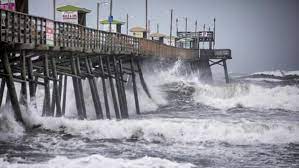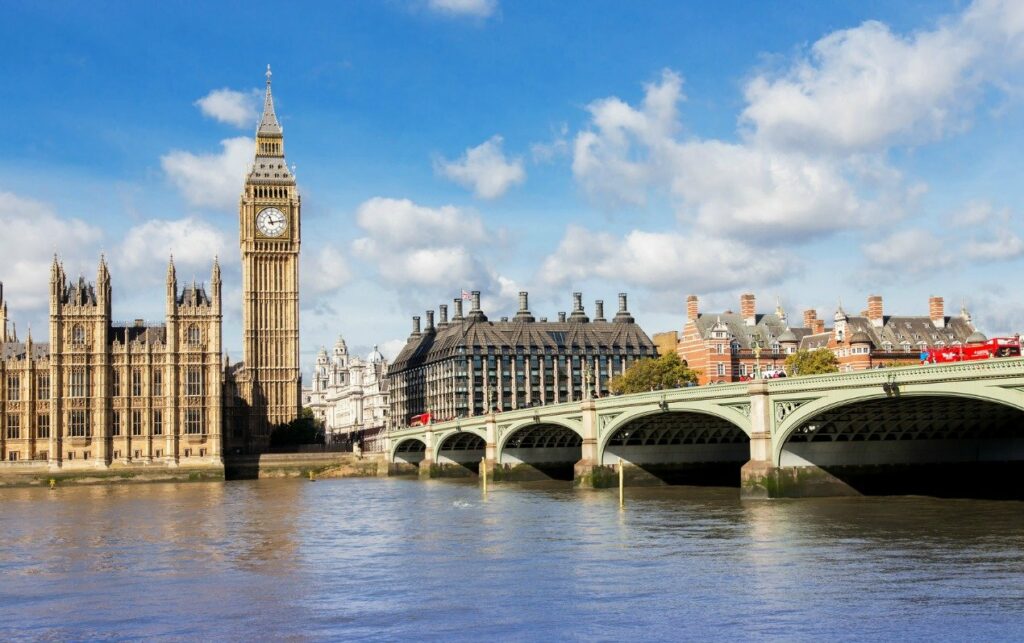Climate alarmists often manage to observe things happening that you and I cannot see at all. A case in point being National Geographic insisting that people are fleeing Puerto Rico for Buffalo because the weather is so much better. “The question of ‘climate havens’ – places where extreme weather events are rare and which tend to be located in the northern regions of the U.S. close to bodies of freshwater – has gained currency in recent years, as deadly wildfires, record heat, and damaging hurricanes increasingly affect day-to-day life in the southern and western parts of the country.” Riiiiight. Meanwhile in the America we can actually see, people are moving south and places like Florida and Texas are among the most rapid gainers despite the heat and hurricane risk. And if you believe the “climate haven” question has “gained currency in recent years” you’ve been talking to the wrong taxi drivers or living in the wrong echo chamber.
As we mentioned last week, New York Times columnist David Gelles is convinced that the typical summer weather in the U.S. is now borderline lethal, “complete with wildfires in California, flash floods in Connecticut and violent storms in Tennessee” but somehow the inhabitants are too dopey to notice; “even as climate change is hitting home for more and more Americans, the issue remains a relatively low priority for many” like a nation of Homer Simpsons eating doughnuts in a burning house. And instead of wondering how to shake them out of their imbecile lethargy, he then asks “Can Democrats make the case to climate voters?”
The short answer is probably “Who cares?” Anyone in the United States who identifies as a “climate voter” is almost certainly already a Democrat, unless they are even further left. And indeed the piece meanders to the fact that Kamala Harris:
“has yet to lay out a detailed climate policy as part of her presidential campaign. Nevertheless, climate-minded voters have flocked to support her.”
We might note unkindly that Kamala Harris has yet to lay out any detailed policy on any issue, with even her grocery-price-fixing more an aspiration than a blueprint, yet progressive voters have flocked to support her. Instead we want to ask a boring old-school sciency question, namely, where’s the evidence?
If you say it’s everywhere, it should be easy to produce it. Thus a Yale Climate Connections piece we also cited insists that:
“Intensifying extreme weather events and an insurance crisis are likely to cause significant economic and political disruption in the U.S. sometime in the next 15 years.”
But which events are intensifying, why the insurance industry isn’t adjusting premiums better to reflect risk, and what justifies the 15-year guess, are all left unaddressed.
Instead the item kicks off with a description of some fools’ decision to shoot uncharted Grand Canyon rapids in 1869, killing a third of their party, before howling:
“Likewise, we find ourselves in an ever-deepening chasm of climate change impacts, forced to run a perilous course through dangerous rapids of unknown ferocity. Our path will be fraught with great peril, and there will be tremendous suffering, great loss of life, and the destruction of much that is precious.”
Faced with such a hurricane of scare words we’re tempted to dive into the rhetoric cellar. But braving the gusts, we ask “By 2039? Really?” Oh yeah:
“It is inevitable that climate change will stop being a hazy future concern and will someday turn everyday life upside down. Very hard times are coming.”
Inevitable, no less.
What he means by “turn everyday life upside down” is unclear, though he mentions hurricanes so perhaps he means literally. Or maybe the idea is that in a decade or so we’ll put the solar panels in the basement and wear shoes on our heads. Or something.
It’s also a bit odd that half the time alarmists say we’re already experiencing the dreadful impacts of climate change, yet he thinks it’s still a “hazy future concern”. Aren’t we caught between wildfires sweeping the continents and seas submerging the coasts? Haven’t glaciers been melting since the 1950s?
Indeed the Yale author, a meteorologist, admits that he doesn’t really know what’s happening, why or when, except it’s big and it’s terrible:
“At the risk of causing counterproductive climate anxiety and doomism…. The scenarios that I depict as the most likely are much harsher than what other experts might choose, but I’ve seen repeatedly that uncertainty is not our friend when it comes to climate change.”
True, in one sense. As weather is hard to predict, and statistical trends impossible to distinguish from noise even on a decadal scale, we are vulnerable to people who make the wildest imaginable claims and say we can’t want to be sure.
We have no sure-fire solution to the vexing and intractable problem that participants in key policy debates interpret evidence differently. But we do think it’s reasonable to ask, when someone declares a region uninhabitable due to hideously deteriorating weather, how it is that more and more people are living there.



My daughter lives in Duluth Minnesota, she lives there because she is an avid cross-country skier. During the last few years, a trickle of Climate refugees from California showed up, fleeing the coming apocalypse, sadly they rarely last one year, winter arrives and reality bites...usually on their left butt cheek and back to Cali they go! They had no idea how harsh a "winter wonderland" can be!
I fled California four years ago, for Texas, to escape economic, rather than climate. disaster. Very hard times are assured, if we follow the absurd plans of the 'Green Transition' types. Minnesota seems to be surging to the forefront of states with bad ideas, so going back to California might be the right choice for them, even with the politician-made wildfires and mud-slides. At least they'll go broke with better weather.
For such a serious subject above,I sure started off with a good belly laff over the Homer Simpson analogy!But if are heading for very hard times as the clown from Yale insists,it won't be because of climate change.It will be because of the Green Transition,and the economic damage that will happen.Especially if Kamala is elected President.And many people are voting for her,not because she is the Democrat candidate,but because she is not Donald Trump.American voters need to ask themselves a simple question:Were they better off after four years of Trump,or after four years of the Biden-Harris Administration?I think the answer is pretty clear.
Yeah, right. That so-called climate haven known as Buffalo has received, under the right conditions, 8 feet of snow in November. As you point out, wise folks are leaving Buffalo for climate disaster areas like Florida and Texas. Where do these people get their "facts"?